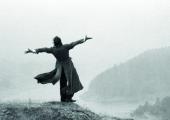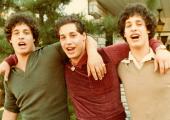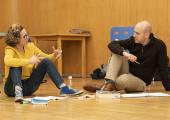'I'll show the lot of you!' Richard E Grant's Oscar nomination

The Withnail star celebrates his Academy Award nod for 'Can You Ever Forgive Me?'
Richard E Grant has captivated the internet. The actor greeted the news of his nomination for an Academy Award by returning to his first rental when no one had heard of him. There he whooped with childlike delight, and then shared the whole thing in an utterly disarming Instagram post. He also phoned up his co-star and co-nominee Melissa McCarthy, and together they cried.









